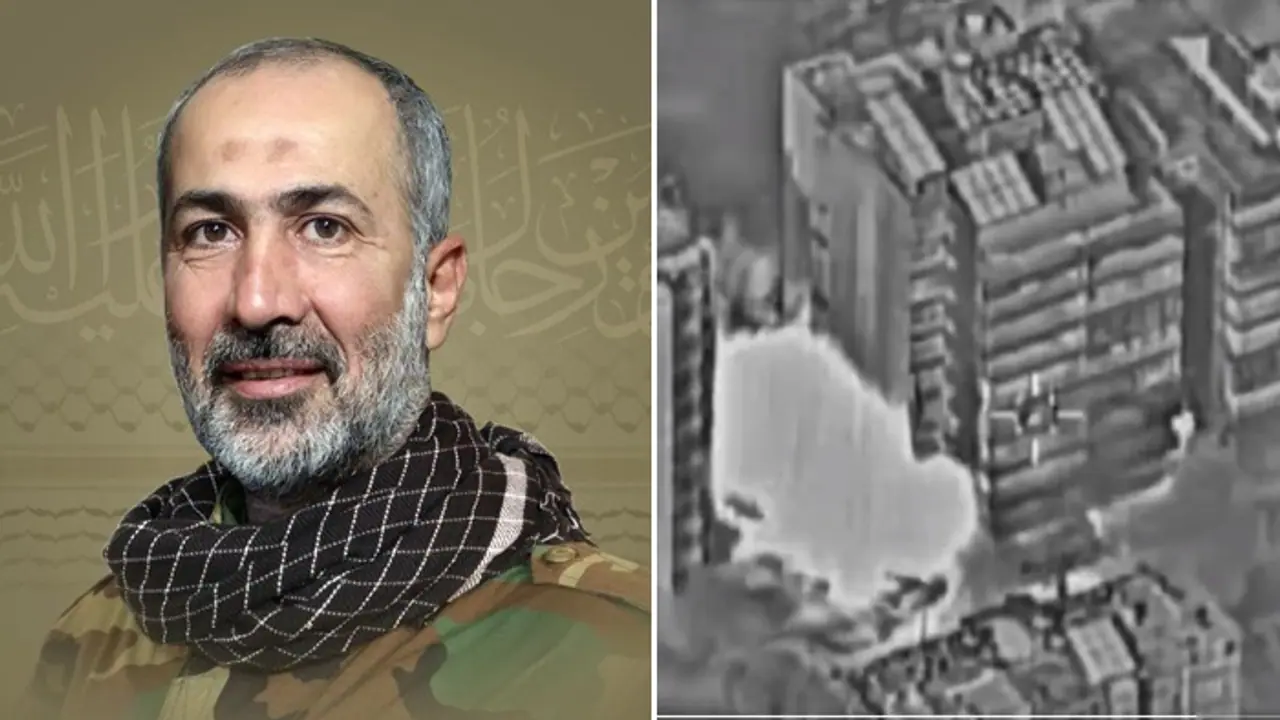In a targeted airstrike, the Israeli Defence Forces (IDF) have confirmed the death of Muhammad Hussein Srour, a high-ranking Hezbollah commander, in a southern suburb of Beirut.
In a targeted airstrike, the Israeli Defence Forces (IDF) have confirmed the death of Muhammad Hussein Srour, a high-ranking Hezbollah commander, in a southern suburb of Beirut. The IDF released drone footage showing multiple explosions that destroyed a residential building where Srour, also known as 'Hajj Abu Saleh,' was reportedly staying.

Srour, born in 1973 in the southern Lebanese village of Aita al-Shaab, joined Hezbollah in 1996 and steadily rose through its ranks. Known for his expertise in military operations, he played a significant role in Hezbollah’s strategy against Israel, particularly through his leadership of the group's aerial command. Srour was closely involved in the development of Hezbollah’s unmanned aerial vehicle (UAV) capabilities, leading efforts to manufacture drones and surface-to-air missile systems.
In a statement, Israeli Prime Minister Benjamin Netanyahu confirmed that he had personally authorized the strike on Srour while in flight, saying, “Our policy is clear - we will continue to hit Hezbollah with full force, and we will not stop until we achieve all our goals.” Netanyahu also highlighted Srour’s position as the head of Hezbollah's UAV unit, a critical component of the group's military arsenal in recent years.
Srour was also accused of overseeing drone and explosive attacks targeting Israeli forces, and his operations extended beyond Lebanon. He was reportedly linked to Hezbollah's involvement in Syria and its support for Houthi forces in Yemen, further elevating his profile within the organization.
In addition to his command of UAV units, Srour led Hezbollah’s surface-to-air missile unit and oversaw the construction of military manufacturing facilities in civilian areas, including southern Lebanon and Beirut. His activities in these regions have sparked concern over the safety of civilians as tensions between Israel and Hezbollah continue to rise.
The strike comes amid an escalation in hostilities between Israel and Hezbollah following the October 7 Hamas attack on Israel. In the aftermath of the assault, Hezbollah launched rocket attacks from southern Lebanon into northern Israel, leading to retaliatory strikes by the IDF. The ongoing violence has raised fears of a broader conflict, as both sides continue to exchange fire across the Israel-Lebanon border.
